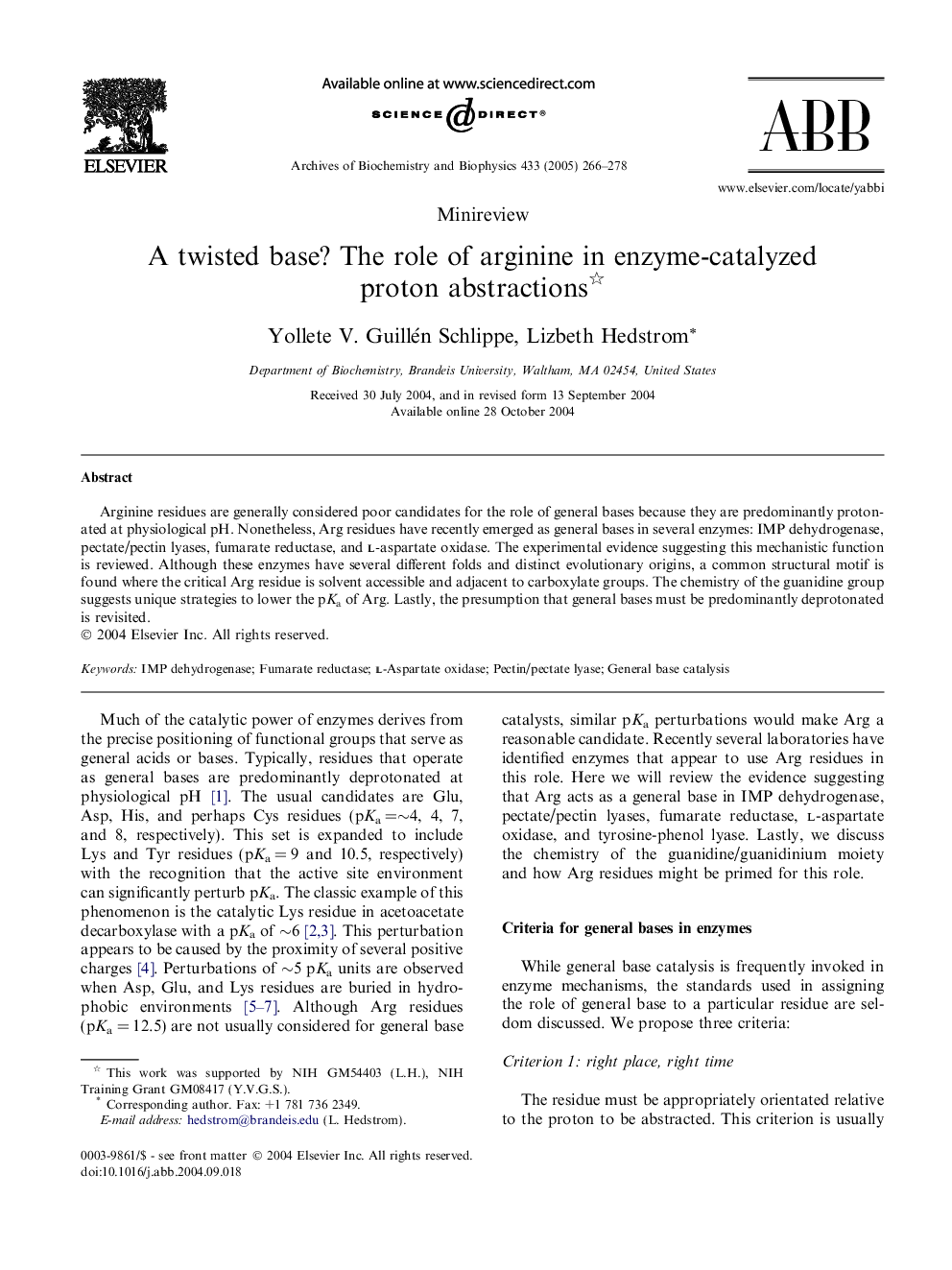| Article ID | Journal | Published Year | Pages | File Type |
|---|---|---|---|---|
| 9882425 | Archives of Biochemistry and Biophysics | 2005 | 13 Pages |
Abstract
Arginine residues are generally considered poor candidates for the role of general bases because they are predominantly protonated at physiological pH. Nonetheless, Arg residues have recently emerged as general bases in several enzymes: IMP dehydrogenase, pectate/pectin lyases, fumarate reductase, and l-aspartate oxidase. The experimental evidence suggesting this mechanistic function is reviewed. Although these enzymes have several different folds and distinct evolutionary origins, a common structural motif is found where the critical Arg residue is solvent accessible and adjacent to carboxylate groups. The chemistry of the guanidine group suggests unique strategies to lower the pKa of Arg. Lastly, the presumption that general bases must be predominantly deprotonated is revisited.
Related Topics
Life Sciences
Biochemistry, Genetics and Molecular Biology
Biochemistry
Authors
Yollete V. Guillén Schlippe, Lizbeth Hedstrom,
